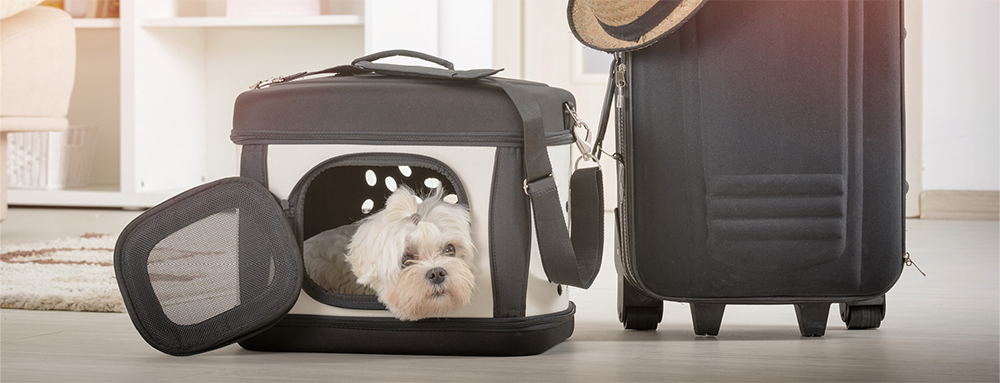Pets are beloved members of the family. If you’re travelling and want to take your pet or have a service animal, you need to be aware of the rules.
Explore this advice to learn about
- what to do before deciding to travel
- preparing to depart Australia
- foreign import rules
- returning to Australia
In this advice, pets are defined as
- dogs (excluding greyhounds and banned breeds)
- cats
- rabbits, guinea pigs and other domestic rodents
- domestic fish (no aeration requirement)
- domestic birds that don’t need a permit to travel.
Before deciding to travel
Talk to your vet
Your pet's health is the most critical factor when considering overseas travel. Meet with a Vet early to ensure your pet is healthy and can travel. Make sure their vaccinations and parasite preventions are up to date.
Research the process and rules
There are rules for departing Australia (export) and entering your destination (import) with a domestic animal.
These are based mainly on preventing the spread of diseases that are a risk to human health. The rules are typically not flexible.
Be aware of Australian import restrictions
If you’re planning to return to Australia with your pet, be aware that
- some animals can’t be returned to Australia under any circumstances
- you can’t import some animals to Australia from certain countries
- assistance dogs are still subject to biosecurity import conditions when returning to Australia. This includes quarantine of up to 6 months.
Consider using a pet transport company
Preparing your pet for export can be a complex process. It’s essential that it’s done correctly. Delays in their departure can occur if steps are not completed correctly.
Consider using a pet transport company to help with some or all pre-export preparations.
Preparing to depart Australia
The export process for animals can be lengthy. It can take several months to complete the required testing and documentation. Plan ahead and start early to ensure you can finish the process in time for your travel.
You’ll need to visit an Australian Quarantine and Inspection Service (AQIS) certified vet at least 30 days before you travel. They’ll help you with the paperwork for exporting your animal from Australia. They can also write a letter or complete paperwork for the authorities in your destination.
The Department of Agriculture, Fisheries and Forestry (DAFF) provides a comprehensive list of requirements that will help you prepare. They also provide links to relevant contacts.
You may need to meet pre-export requirements if you plan to import your animal back to Australia within 6 months of export. Visit the DAFF website to learn about pre-export preparations for dogs and cats returning to Australia.
Pet Travel Insurance
It’s unlikely that your own travel insurance will also cover your pet. Get pet travel insurance.
Foreign import rules
Each country has its own health requirements for importing animals. These can be complex and can change without notice. If your pet fails to meet importing country requirements, they may be detained on arrival.
For more details, you should:
- read the Manual of Importing Country Requirements (Micor)
- contact the relevant authority of the importing country.
You are responsible for providing the importing country requirements in writing to the AQIS certified vet that will prepare your animal for export.
Some of the most common requirements are
- an international health certificate (completed within a specific time frame, usually within 10 days, before your arrival date) and any other paperwork required by the destination country
- government export paperwork
- a microchip
- up-to-date vaccinations
- blood titre tests
- parasite prevention.
You may need an import permit for some countries. The permit will list the health requirements you must meet, including
- testing
- treatments
- examinations
Returning to Australia
Australia's pet entry and quarantine rules are some of the strictest in the world. When your pet leaves the country, it no longer qualifies for its Australian health status. It will need to go through quarantine to return.
This process can be complex and lengthy, sometimes as long as six months. To help things go smoothly, it's a good idea to know the requirements and plan ahead.
- Use the Australian government's pet import tool to see if your pet is eligible for import back to Australia. Get a recommended timeline.
- Register for an import permit. You need this to bring your dog or cat back into the country. If your pet will be leaving and returning within six months, it's a good idea to do this before departure.
Read next
- Learn more about taking animals overseas.
- Understand the requirements for bringing cats and dogs to Australia.

